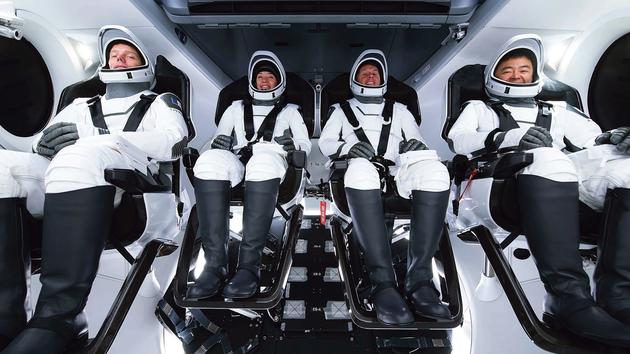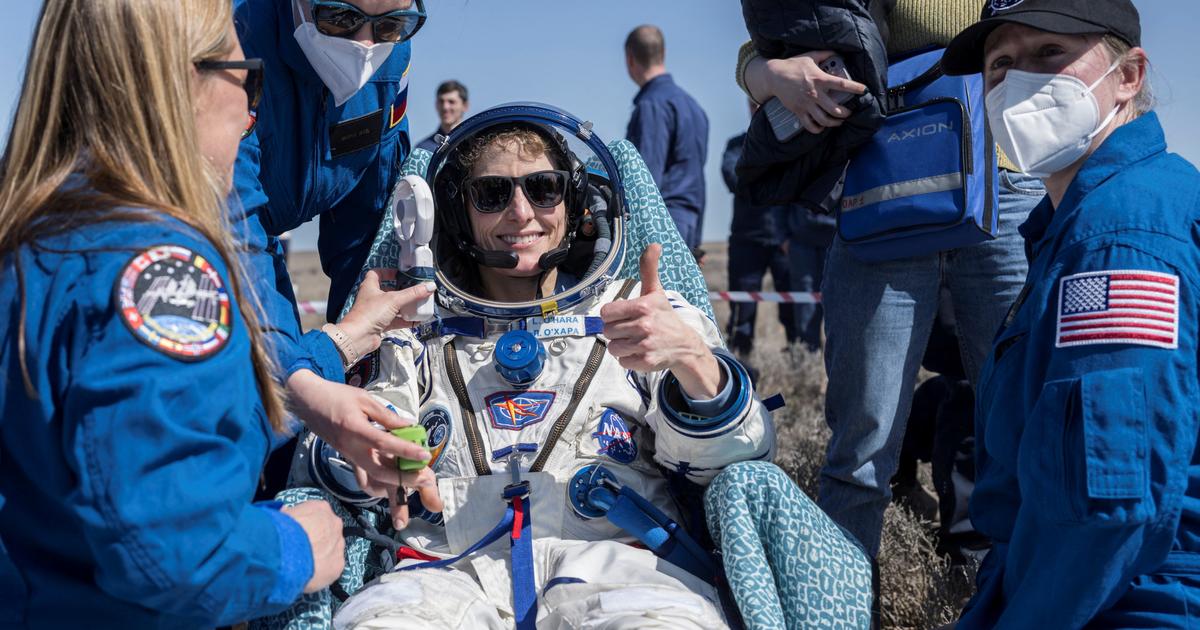The whole of France will have its eyes on him.
After a twenty-four hour postponement due to adverse weather conditions, Thomas Pesquet is scheduled to take off this Friday at 11:49 a.m. from Cape Canaveral, Florida, aboard a SpaceX Falcon 9 rocket to reach the International Space Station (ISS ).
If all goes as planned, he should spend six months there, smashing the French record of 209 cumulative days spent in orbit held by Jean-Pierre Haigneré.
He should also become in three months the first French to take command of the station, thanks to the next crew rotation.
To discover
Covid-19: instructions for use of self-tests
"It will be a little more responsibility: take care less of my own activities and take care of other people's activities a little more, try to make everything work well, talk to the control center, understand, do pass messages, try to put oil in the cogs, unpin the conflicts before they start, ”
he explained last month on Franceinfo.
"If ever we had an emergency situation, there is only one who has the decision-making power, it is the captain."
Read also:
How Thomas Pesquet prepared for a new historic mission in space
It has not been four years since he returned from his first stay aboard the ISS and yet Thomas Pesquet has already changed a lot. The young man is no longer so young - he is now 43 years old - and it is as a veteran experienced in the exercise that the Normand tackles his second mission.
"I think the second stay is more difficult than the first,"
he anticipated with great clarity during a press briefing earlier in the week. For a simple reason:
"Physically, it's going to go very well, but mentally it's more difficult because you know what you are exposed to."
A six-month stay in a small space, far from loved ones;
a repetitive daily routine punctuated by demanding physical exercises to counter the effects of weightlessness;
pains generated by certain physiological experiences, etc.
The life of an astronaut is not an easy one.
Thomas Pesquet said he was nevertheless very confident, emphasizing the reliability of the Falcon 9 rocket. Its current rate of fire, almost weekly, is impressive.
And it is necessary to go back to June 2015 to find the trace of an explosion in flight of the launcher
The takeoff, on the other hand, does not seem to scare him too much.
There would be enough, however: only two reusable Crew Dragon capsules have already carried astronauts into orbit.
The first is also the one with which it will set off on Friday, which will mark the first reuse of a manned spaceship other than the old shuttles.
The second is currently docked to the ISS and is due to descend on April 28 with its four passengers.
For a few days, there will be 11 people on board the ISS.
To read also:
Thomas Pesquet: "Man will walk on Mars during my lifetime"
Thomas Pesquet said he was nevertheless very confident, emphasizing the reliability of the Falcon 9 rocket. Its current rate of fire, almost weekly, is impressive.
And it is necessary to go back to June 2015 to find the trace of an explosion in flight of the launcher, which the cargo vehicle which constituted the payload had survived.
Like the capsule, Thomas Pesquet's rocket has already flown.
With his three traveling companions, he also inscribed his initials in the soot that was deposited on the body of the launcher during these previous flights.
Joys of weightlessness
The French astronaut also underlined the technological leap that this new capsule represented.
“It's more modern, it's more automated, the display of information is super comfortable
,” he explains.
You don't have to interpret lots of small analog indicators
(like in the Soyuz ship, editor's note).
It's like navigating with a GPS rather than dead reckoning. ”
Overall, this greater automation of the capsule would tend to reassure him more than to worry him.
We have a thought for our loved ones, our family, it's a little intense moment, then very quickly we turn to the technique.
It is not very poetic.
We have a task to do, we don't want to lose a single piece of information that would be important
Thomas Pesquet.
What will he think of in the moments leading up to take-off?
“We have a thought for our loved ones, our family, it's a little intense moment, then very quickly we turn to technique. It is not very poetic. We have a task to accomplish, we don't want to lose a single piece of information that would be important. ”
Thomas Pesquet will however have a secondary role during the trip, as will the Japanese Akihiko Hoshide who is accompanying him. The American Megan McArthur is in charge of the piloting. For the record, she is married to astronaut Bob Behnken, who performed the capsule's first test flight. The captain of the capsule will be none other than Shane Kimbrough, with whom Thomas Pesquet has already spent three months in the station in 2017. After the intense thrust of takeoff, then of the second stage nine minutes later, the Frenchman should find the joys of weightlessness after only fourteen minutes. A small plush, whose identity remains secret, will then begin to fly in the passenger compartment. It will take about twenty-three hours of travel before docking with the ISS.The second season of Thomas Pesquet's adventures in space has only just begun.









